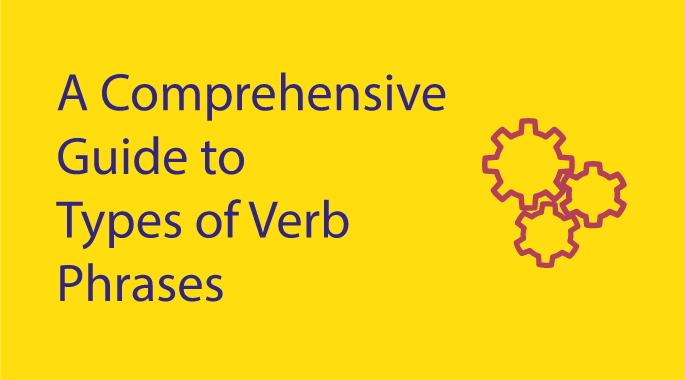Table of Contents
Types of Verb Phrases
Verb phrases are groups of words that function as verbs in sentences. They consist of a main verb and any auxiliary verbs, modifiers, or complements that are associated with it. Verb phrases can be simple or complex, depending on their structure and function.
Simple verb phrases consist of a single main verb without any auxiliary verbs. For example, “The dog ran.”
Complex verb phrases consist of a main verb and one or more auxiliary verbs, modifiers, or complements. For example, “The dog eagerly chased the squirrels across the park.”
Verb phrases are an essential part of English grammar, and understanding how they work can help us to improve our writing and speaking skills.

Here are the different types of verb phrases:
Simple Verb Phrases
Simple verb phrases consist of a single main verb without any auxiliary verbs. For example:
- She runs fast.
- The dog barked at the mailman.
- I love chocolate.
Compound Types of Verb Phrases
Compound types of verb phrases consist of two or more verbs, with one main verb and one or more auxiliary verbs. Auxiliary verbs are helping verbs that provide additional information about the main verb, such as tense, mood, or voice. For example:
- The students are studying for their exams.
- She has finished her homework.
- The teacher will give a quiz tomorrow.
Complex Types of Verb Phrases
Complex types of verb phrases consist of a main verb and one or more modifiers or complements. Modifiers can be adverbs, prepositional phrases, or infinitive/gerund phrases that modify or further describe the action or state. Complements can be objects, indirect objects, or prepositional phrases that complete the meaning of the verb. For example:
- He went to the park to play basketball.
- She gave the book to her friend.
- The students are very excited about the field trip.
Phrasal Verbs
Phrasal verbs are a type of complex verb phrase that consists of a main verb and a particle. Particles are small words, such as “up,” “down,” “in,” and “out,” that change the meaning of the main verb. For example:
- She picked up her books from the floor.
- The students looked up the definition of the word in the dictionary.
- The plane took off from the airport.
Non-Finite Verb Phrases
Non-finite verb phrases are verb phrases that do not function as verbs in a sentence. Instead, they function as nouns, adjectives, or adverbs. There are three types of non-finite verb phrases:
- Infinitive phrases: Infinitive phrases begin with the word “to” followed by a verb. For example:
- To succeed, you must work hard.
- I want to travel the world.
- She is too young to drive.
- Gerund phrases: Gerund phrases begin with a verb ending in “-ing.” For example:
- Running is my favorite exercise.
- I enjoy reading books.
- She is good at solving problems.
- Participial phrases: Participial phrases begin with a verb ending in “-ing” or “-ed” and act as adjectives. For example:
- The dog barking at the mailman was annoying.
- The book written by Stephen King was very scary.
- The food cooked by my grandmother was delicious.
Conclusion
In conclusion, verb phrases stand as the bedrock of English grammar, granting us the power to convey a diverse spectrum of actions and states with finesse and nuance. Our grasp of these versatile constructs not only enriches our language proficiency but also elevates our proficiency in both the realms of writing and spoken communication. Armed with a comprehensive understanding of the various types of verb phrases, we embark on a journey of linguistic refinement, harnessing their potential to articulate our thoughts and ideas with precision and eloquence. As we embrace the intricate world of verb phrases, we unlock the gateway to elevated language skills and the art of effective expression in the English language.